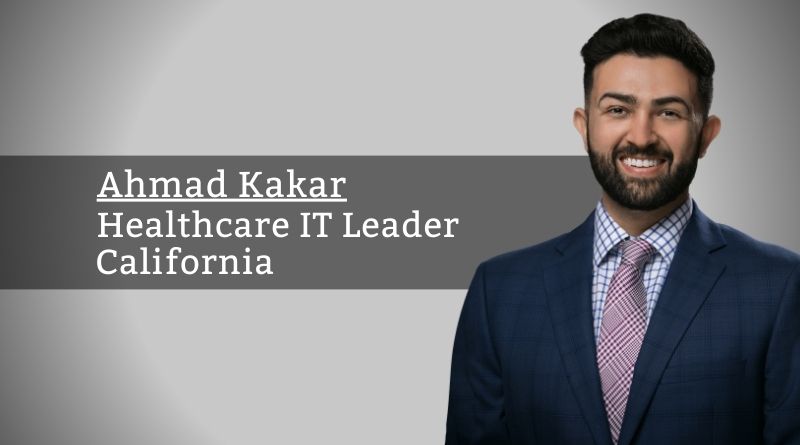The Transformative Role of ERP in Healthcare: A New Era
By Ahmad Kakar, Healthcare IT Leader, California
A hidden revolution is happening in modern hospitals’ busy hallways. Beyond stethoscopes and patient records, digital transformation has been and is changing healthcare. You might ask, ‘What’s leading this charge?’ It’s the Enterprise Resource Planning system.
The Digital Backbone of Healthcare: ERP
ERP systems have moved from industry and retail to healthcare. These systems merge patient care and inventory management into one platform. The result? Significant cost reductions, enhanced operational efficiency, and improved patient outcomes.
The AI Advantage
The magic comes when ERP and AI are integrated. AI systems can evaluate massive volumes of data in real-time, providing new insights. Imagine a system that can forecast a patient’s health decline hours in advance or optimize the supply chain to keep crucial medical supplies in stock. That’s the power of an AI-enhanced ERP.
Factors to be considered while deploying an ERP in a healthcare institution
Integration: Integration is a complex process, but can be seamless with careful planning. Start with a comprehensive analysis of the existing infrastructure. Identify potential constraints and upgrade-required areas. Engage ERP vendors with a track record in the healthcare industry, as they will provide industry-specific insights. Ensure a phased implementation, perhaps beginning with non-essential departments. Regular training sessions and a dedicated support staff can aid in resolving any initial difficulties.
Value-based care: Value-based care is enhancing patient outcomes while controlling costs. The data analytics capabilities of ERP systems can facilitate the monitoring of patient outcomes, the identification of best practices, and the allocation of resources where they will have the greatest impact.
ROI: An ERP system’s returns include enhanced patient outcomes, increased staff satisfaction due to streamlined processes, and enhanced regulatory conformance. To ensure that the system delivers on its promise, establish distinct KPIs at the outset and monitor them regularly.
Sustainable practices: In healthcare, sustainability means ensuring that we can meet current requirements without compromising future generation’s capabilities. ERP systems are crucial in this context. ERP systems promote sustainability by optimizing resource utilization, reducing waste, and assuring efficient energy use (via smart infrastructure management). The ERP’s data-driven insights can help formulate policies that strike a balance between immediate requirements and long-term sustainability objectives.
People, Process and Data Migration: Implementing ERP systems is not possible without obstacles. Staff are resistant to change, there are potential data migration issues, and the necessary initial investment may cause some CFOs to pause everything. These issues can be mitigated with a clear vision and effective leadership. Engaging employees early on, involving them in the decision-making process, and providing adequate training can help overcome resistance. Collaboration with seasoned vendors can facilitate seamless data migration. It is essential to view it in terms of the long-term cost reductions and enhanced patient care that the ERP system will provide.
As hospitals and clinics implement ERP systems, operations are streamlined, and patient care is reimagined. ERP and AI combine to create a promising digital future.
Challenges to consider
1. Financial Consequences
Challenge: Initial ERP system investments can be substantial. Leaders frequently struggle to justify the costs, particularly when budgets are limited and numerous competing priorities exist.
Consideration: Despite the initial costs being substantial, it is crucial to evaluate the investment in terms of its long-term return on investment. Leaders should emphasize not only direct cost savings, but also intangible benefits – improved patient outcomes, increased staff efficacy, and enhanced compliance.
2. Opposition to Change
Challenge: Oftentimes, healthcare professionals are set in their methods (let’s face it, we’re all human), having utilized particular systems and procedures for decades. Resistance, skepticism, or even dread may be encountered when introducing a new system.
Consideration: Change management is indispensable. Leaders should involve employees in the decision-making process as early as possible, elicit their feedback, and ensure they comprehend the advantages of the new system, not only for the organization but also for their daily responsibilities.
3. Data Protection and Compliance
Challenge: As patient data become increasingly digitized, data security and regulatory compliance become paramount concerns.
Consideration: Leaders must ensure that the selected ERP system complies with industry regulations and standards. Essential are regular audits, strong encryption, and user access controls. It is also essential to communicate these measures to stakeholders to establish their trust.
4. Incorporation of Existing Systems
Challenge: Most healthcare institutions have already implemented various software solutions. This can be technically difficult and disruptive to integrate with the new ERP system.
Consideration: A phased integration strategy can be useful. Leaders should prioritize incorporating essential systems first and then progressively expand to integrating other systems. Collaboration with ERP vendors with healthcare experience can also facilitate this transition.
5. Guaranteeing Continuity of Care
Challenge: During the ERP implementation phase, there is a risk of disruptions that could negatively affect patient care.
Consideration: The ERP system should be implemented during off-peak hours or in phases to ensure that patient care is not compromised. Regular communication with staff and patients regarding potential disruptions and the countermeasures in place is also essential.
6. Training and Development of Skills
Challenge: An ERP system, particularly one with AI capabilities, necessitates a specific skill set. There may be a skills deficit in the modern workforce.
Consideration: It is essential to invest in comprehensive training programs. During the initial implementation phases, leaders should also consider engaging or consulting with professionals to ensure a seamless transition.
7. Long-term scalability and support
Challenge: Healthcare institutions evolve and develop. The ERP system implemented today may not satisfy tomorrow’s requirements.
Consideration: Leaders should choose scalable ERP solutions that can adapt to changing requirements. Ensuring that the vendor provides long-term support can aid in addressing future challenges.
The healthcare industry is undergoing a digital revolution. As hospitals and clinics implement ERP systems, operations are streamlined, and patient care is reimagined. ERP and AI combine to create a promising digital future.



